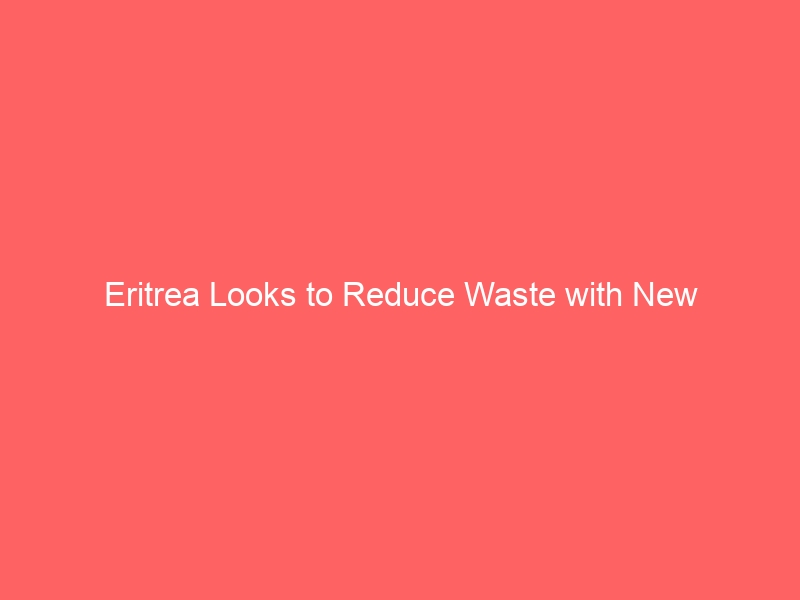Eritrea, a small country in the Horn of Africa, is taking proactive steps to reduce its waste and improve its waste management practices. With the increasing population and urbanization, the country is facing a growing waste management challenge. In response, the government is looking to invest in new incinerators for sale as part of its waste management strategy.
The Growing Waste Management Challenge in Eritrea
Eritrea’s waste management infrastructure is under strain due to the rapid urbanization and population growth in the country. The inadequate waste management system has led to environmental pollution and public health concerns. The government is aware of the need to improve waste management practices and is actively seeking solutions to address the growing waste management challenge.
Investing in New Incinerators for Sale
As part of its efforts to improve waste management, Eritrea is considering investing in new incinerators for sale. Incineration is a method of waste disposal that involves the burning of waste materials at high temperatures. This process not only reduces the volume of waste but also produces energy in the form of heat and electricity. By investing in new incinerators, Eritrea aims to reduce the amount of waste sent to landfill and minimize the environmental impact of waste disposal.
The Environmental and Economic Benefits of Incineration
Incineration offers several environmental and economic benefits. By reducing the volume of waste, incineration helps to alleviate the strain on landfill capacity and minimizes the release of greenhouse gases from decomposing waste. In addition, the energy produced from incineration can be used to generate electricity, reducing the country’s reliance on fossil fuels and contributing to a more sustainable energy mix.
Promoting Sustainable Waste Management Practices
Investing in new incinerators for sale is just one part of Eritrea’s broader strategy to promote sustainable waste management practices. The government is also focusing on initiatives to increase recycling and waste separation, as well as raising public awareness about the importance of reducing, reusing, and recycling waste. By implementing a comprehensive waste management strategy, Eritrea aims to minimize the environmental impact of waste disposal and create a cleaner, healthier environment for its citizens.
Conclusion
Eritrea’s decision to invest in new incinerators for sale demonstrates its commitment to improving waste management practices and promoting environmental sustainability. By adopting innovative solutions such as incineration, the country is taking proactive steps to reduce the amount of waste sent to landfill and minimize its environmental impact. With a comprehensive waste management strategy in place, Eritrea is setting a positive example for other countries facing similar waste management challenges.








